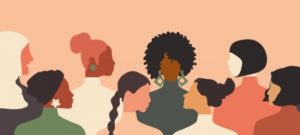By Zoe Kinias
Institutions like INSEAD are uniquely equipped to address systemic biases.
The Covid-19 pandemic has revealed and exacerbated problems in business and society, including the issue of gender imbalance. According to the World Economic Forum, the global gender gap has widened from 99 to 135 years since the crisis began.
How do we reverse this trend? There is no quick fix. Women of diverse backgrounds are held back by systemic webs of challenges that vary in their specifics, while always being societal, structural and psychological in nature. However, we can start with addressing common elements of systemic biases. In fact, International Women’s Day 2022 has made “break the bias” its theme and call to action for this year.
Business schools are uniquely equipped to lead this charge – especially schools with global reach, such as INSEAD. To understand why, we must consider the power and potential of business schools to lead interventions that change society.
Direct and indirect impact
On a fundamental level, business schools serve people who are eager to learn. MBA students and executive-level learners enrol in programmes and courses to become more effective and knowledgeable leaders. Naturally, when people connect with business schools, they are particularly open to challenge and adaptive to change.
This places us – the educators – in a fortunate position: We are granted an audience of people with capacity to learn about biases. Moreover, we have direct access to decision makers who can intervene on those biases. Given that one-third of Fortune 500 CEOs have an MBA, business schools essentially have the eyes and ears of the leaders running the world.
By consequence, business schools have an opportunity, if not a responsibility, to help dismantle biases at psychological, organisational and societal levels. Schools can do this directly by educating leaders about biases, stereotypes and discrimination and how to act against them. And they can do it indirectly by influencing the decision makers who influence society in their roles as business leaders.
Indirect interventions happen when business schools change how business leaders approach their work. Leaders learn to think critically about whether and how their organisational practices, products and services help or hinder gender balance and other forms of diversity, equity and inclusion. They learn to identify and eliminate biases – including unconscious ones – that recreate inequity within their organisations.
As these leaders’ mindsets and skillsets evolve, they make decisions that change other aspects of their organisations, such as culture, values, priorities, products and services. Not only does this impact the organisations’ employees, but it influences the communities that engage with their products and services.
For example, consider how popular music, videos, films and advertisements can impact biases, such as by perpetuating gender and racial stereotypes. Through education, industry CEOs and other leaders can improve their own organisational practices and become more mindful about the messages their products reflect and recreate. Over time, that can lead to entertainment products that bolster diversity, equity and inclusion. In turn, this would influence the hearts and minds of all the people who consume the entertainment products by listening to music, watching films, etc.
Progress at INSEAD
In the past few years, we at INSEAD have made a concerted effort to address gender biases through our research, teaching and engagement activities. Our work is far from done, but we have made progress in several areas, including through recently appointing Sharon Brooks as our first Executive Director of Diversity, Equity and Inclusion.
We are striving to serve as a role model – in terms of improving gender balance – in several ways. Our deans have made commitments for increasing gender diversity in representation. Many of our faculty are dedicated to conducting courses in a way that fosters inclusion, with INSEAD providing support for such efforts. In the classroom, we are working to celebrate women leaders and eliminate biases and mitigate their impact where present, such as by calling out instances where women are interrupted.
We also strive to integrate gender issues into courses across diverse academic disciplines, while offering electives and online programmes focused specifically on diversity, equity and inclusion. For example, our economics courses cover the gender wage gap, and all our MBA students participate in the “Inclusive Leadership” session as part of orientation.
An urgent issue
None of this work is easy. But it is urgent when we consider how much social conditions have recently worsened for women.
In the past two years, women have been disproportionally impacted by overwork (when paid and uncompensated domestic labour are combined) or loss of work, largely due to precarious employment. Women have shouldered the burden of uncompensated domestic labour, even as that labour has surged; this work includes providing childcare due to day-care closures, managing children’s remote learning and performing other care activities that many women disproportionately carry. Women have also provided significantly more emotional labour – that is, caring for others’ feelings at home and work – than men throughout the pandemic.
The consequences are startling: According to McKinsey’s latest Women in the Workplace report, 42 percent of women say they were “often” or “almost” burnt out in 2021, compared to 32 percent one year prior. One in three say they have considered downshifting their careers or leaving the workforce this year. And four in 10 women have considered leaving their company or switching jobs.
Businesses can’t afford to lose this talent. But with help from business schools, they can do something about it.
Zoe Kinias is an Associate Professor of Organisational Behaviour at INSEAD and the Academic Director of INSEAD’s Gender Initiative. She is the programme director for the INSEAD Gender Diversity Programme, an INSEAD Executive Education online programme.








